Understanding Brisket Cooking Basics
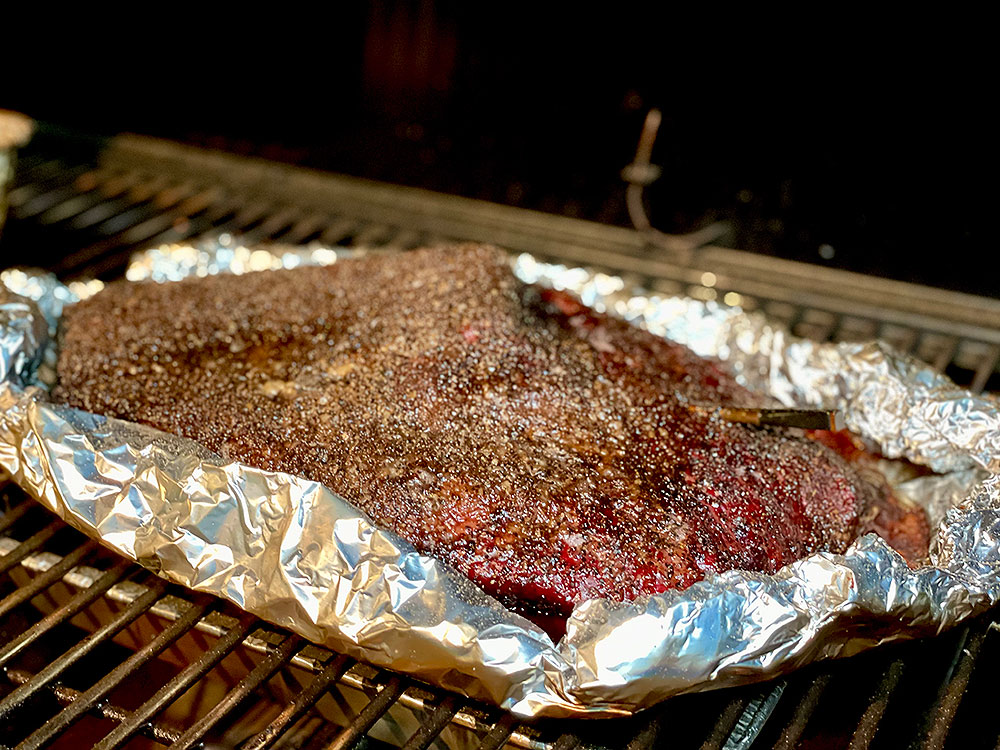
Brisket, a cut of meat typically taken from the chest area of a cow, is known for its rich flavor and tenderness when cooked properly. To achieve the best results, it is essential to understand the basics of brisket cooking. This includes knowing the cooking process, temperature and cooking time guidelines, as well as factors that can affect the cook time. By having a solid understanding of these fundamentals, you can avoid overcooking or undercooking your brisket, ensuring a delicious and satisfying barbecue experience.
Brisket Cooking Process Overview
The brisket cooking process involves slow and low cooking to achieve the desired tenderness and flavor. It starts with selecting a quality brisket cut and properly seasoning it with a dry rub or marinade. The brisket is then cooked on a grill or smoker, using indirect heat and maintaining a consistent temperature of around 225-250°F. This low and slow cooking method allows the connective tissues in the brisket to slowly break down, resulting in a moist and tender final product. The cooking process can take anywhere from 8 to 12 hours, depending on the size and thickness of the brisket. It is important to monitor the temperature throughout the process and make any necessary adjustments to ensure optimal cooking.
Brisket Temperature And Cooking Time Guidelines
Achieving the perfect brisket requires careful monitoring of its internal temperature. The general guideline is to cook brisket until it reaches an internal temperature of around 195-205°F. This ensures that the tough connective tissues have broken down, resulting in a tender and juicy brisket. However, it’s important to note that every brisket is different, so cooking times can vary. On average, a 10-15 pound brisket can take anywhere from 8 to 12 hours to cook at 225-250°F. Use a meat thermometer to ensure accuracy and don’t rush the cooking process to avoid overcooking.
Common Mistakes When Cooking Brisket
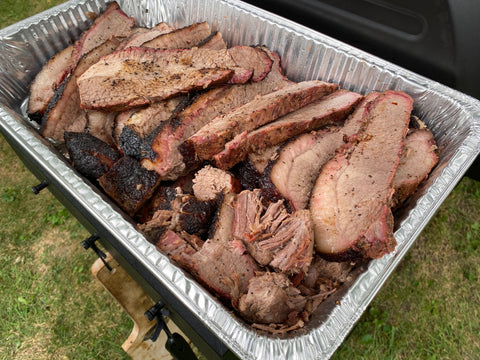
When it comes to cooking brisket, there are a few common mistakes that can easily be avoided. One of the biggest mistakes is overcooking the brisket, which can result in dry and tough meat. On the other hand, undercooking the brisket can leave it chewy and unappetizing. It’s important to find the right balance and cook the brisket until it reaches the desired temperature and tenderness. Another mistake to avoid is not properly seasoning the brisket, as this can greatly impact the flavor. Lastly, rushing the cooking process and not allowing enough time for the connective tissues to break down can also lead to a less-than-ideal brisket. By being mindful of these common mistakes, you can ensure that your brisket turns out perfectly tender and flavorful.
Overcooking Vs Undercooking Brisket
Overcooking and undercooking brisket can both result in less-than-desirable outcomes. When brisket is overcooked, it becomes dry and may even fall apart. The meat loses its juiciness and tenderness, making it unappealing to eat. On the other hand, undercooking brisket can leave it tough and chewy. The connective tissues in the meat haven’t had enough time to break down, resulting in a less tender texture. Finding the right balance and cooking brisket to the proper temperature is crucial to achieving a juicy and tender result.
Tips To Avoid Dry And Tough Brisket
To avoid ending up with a dry and tough brisket, there are a few key tips to keep in mind. First and foremost, make sure to choose a good quality brisket with a nice layer of fat. This fat will help keep the meat moist during cooking. Additionally, be mindful of the cooking temperature and time. Cooking low and slow is key to breaking down the tough connective tissues and achieving a tender result. Using a meat thermometer is also crucial to ensure the brisket reaches the proper internal temperature. Lastly, allowing the brisket to rest for at least 30 minutes before slicing will help retain its juices and ensure a moist end result.
Factors Affecting Brisket Cook Time
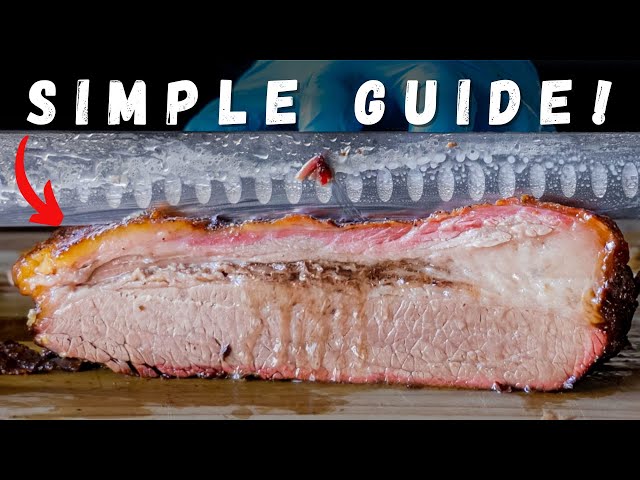
Several factors can affect the cook time of a brisket. The size and weight of the brisket play a role in determining how long it needs to cook. A larger brisket will take longer to cook compared to a smaller one. Additionally, the cooking method used can also impact the cook time. Smoking a brisket at a lower temperature for a longer period will require more time compared to grilling at a higher heat. It is important to consider these factors and adjust your cooking time accordingly to achieve the desired tenderness and flavor in your brisket.
Brisket Size And Weight Considerations
When it comes to cooking brisket, the size and weight of the meat are important factors to consider. A larger brisket will take longer to cook compared to a smaller one. This is because a larger piece of meat requires more time for the heat to penetrate and cook it thoroughly. Additionally, the size and weight of the brisket can also affect how evenly it cooks. A thicker and heavier brisket may require adjustments in cooking techniques or temperature to ensure that it is cooked evenly and to the desired level of tenderness. Remember to factor in the size and weight of your brisket when planning your cook time to achieve the best results.
Impact Of Cooking Methods On Brisket Tenderness
The cooking method you choose can have a significant impact on the tenderness of your brisket. Different cooking methods can result in different levels of tenderness, so it’s important to choose the right technique for the desired outcome.
One popular method is low and slow cooking, which involves cooking the brisket at a low temperature for a long period of time. This method allows the connective tissues in the meat to break down slowly, resulting in a tender and melt-in-your-mouth texture.
Another method is braising, which involves searing the brisket on high heat and then cooking it in a liquid at a low temperature. Braising helps to tenderize the meat by allowing it to cook in the liquid, resulting in a moist and tender brisket.
Smoking is another method that can enhance the tenderness of the brisket. The slow and indirect heat of the smoker helps to break down the collagen in the meat, resulting in a tender and flavorful brisket.
Regardless of the cooking method you choose, it’s important to take into account the size and weight of the brisket, as well as monitoring the internal temperature to ensure it reaches the desired level of tenderness. By selecting the right cooking method and paying attention to these factors, you can achieve a perfectly tender brisket every time.
How To Prevent Overcooking Brisket
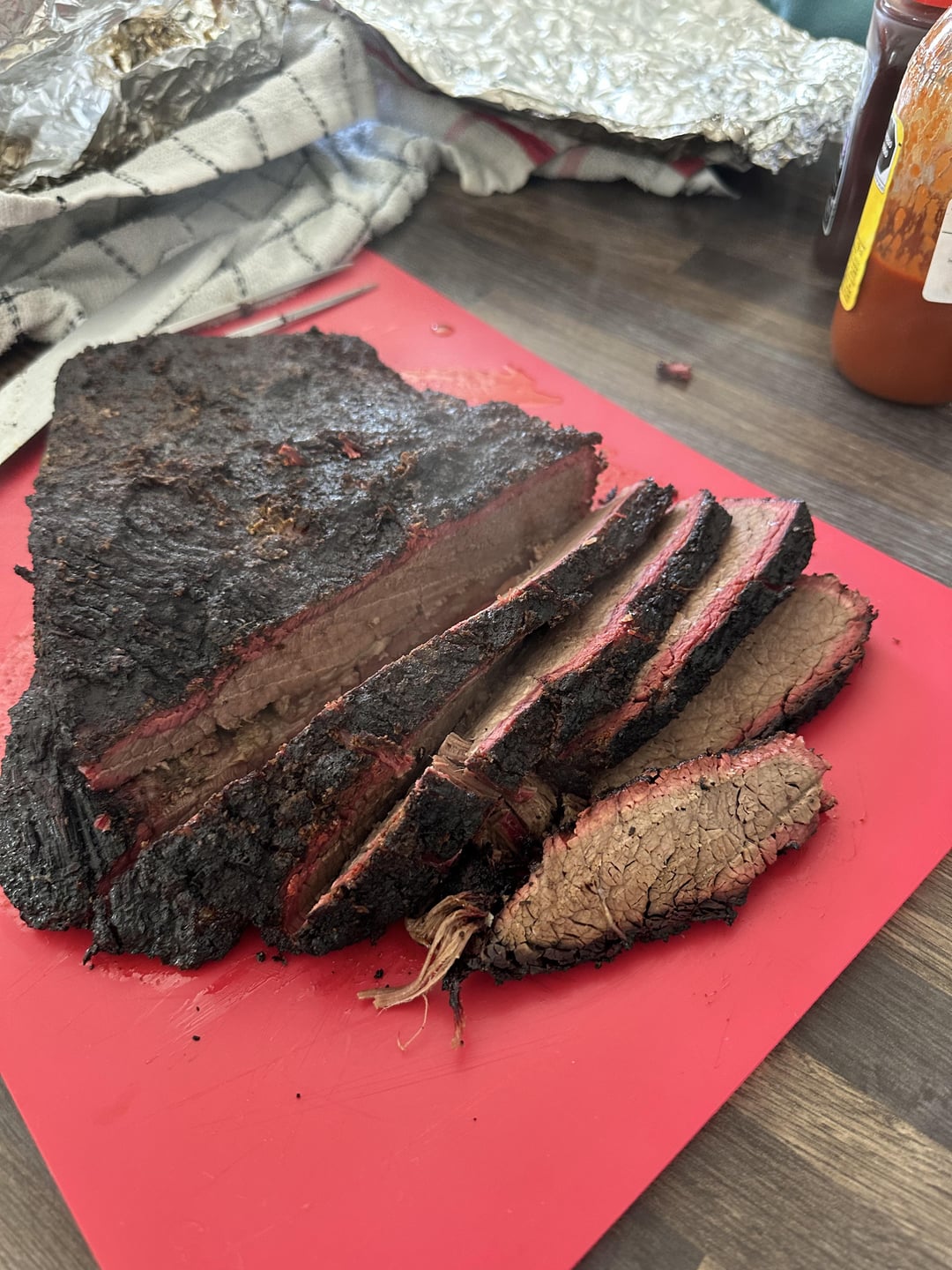
To prevent overcooking brisket and ensure a perfectly cooked result, there are a few important steps to follow. First, using a meat thermometer is crucial for accurate temperature monitoring. Insert the thermometer into the thickest part of the brisket, making sure it doesn’t touch the bone. This will help you determine when the brisket reaches the desired internal temperature.
Second, resting the brisket after cooking is essential. Let it sit for at least 30 minutes before slicing to allow the juices to redistribute throughout the meat, resulting in a moist and tender brisket.
Lastly, controlling the cooking temperature is key. Whether you’re using an oven, smoker, or grill, maintain a consistent temperature and avoid drastic fluctuations to prevent overcooking or undercooking.
By following these steps, you can avoid the risk of overcooking your brisket and achieve a delicious and tender result every time.
Using Meat Thermometers For Accurate Temperature Monitoring
Using a meat thermometer is crucial for accurate temperature monitoring when cooking brisket. This simple tool ensures that you avoid overcooking or undercooking your meat, resulting in perfectly cooked brisket every time. To use a meat thermometer, insert it into the thickest part of the brisket, making sure it doesn’t touch the bone. This will give you an accurate reading of the internal temperature. Remember to check the temperature throughout the cooking process to ensure that your brisket reaches the desired level of doneness. By using a meat thermometer, you can eliminate any guesswork and achieve precise and consistent results.
Resting Brisket And Temperature Control Techniques
Resting brisket after cooking is a crucial step to ensure that it remains juicy and tender. Once the brisket reaches the desired internal temperature, remove it from the heat source and let it rest for at least 30 minutes before slicing. During this time, the meat fibers relax and redistribute juices, resulting in a more flavorful and moist brisket. To control the temperature during resting, wrap the brisket in foil or butcher paper and place it in a cooler or insulated container. This will help maintain the desired serving temperature and prevent the brisket from overcooking or cooling too rapidly.
Salvaging Overcooked Brisket
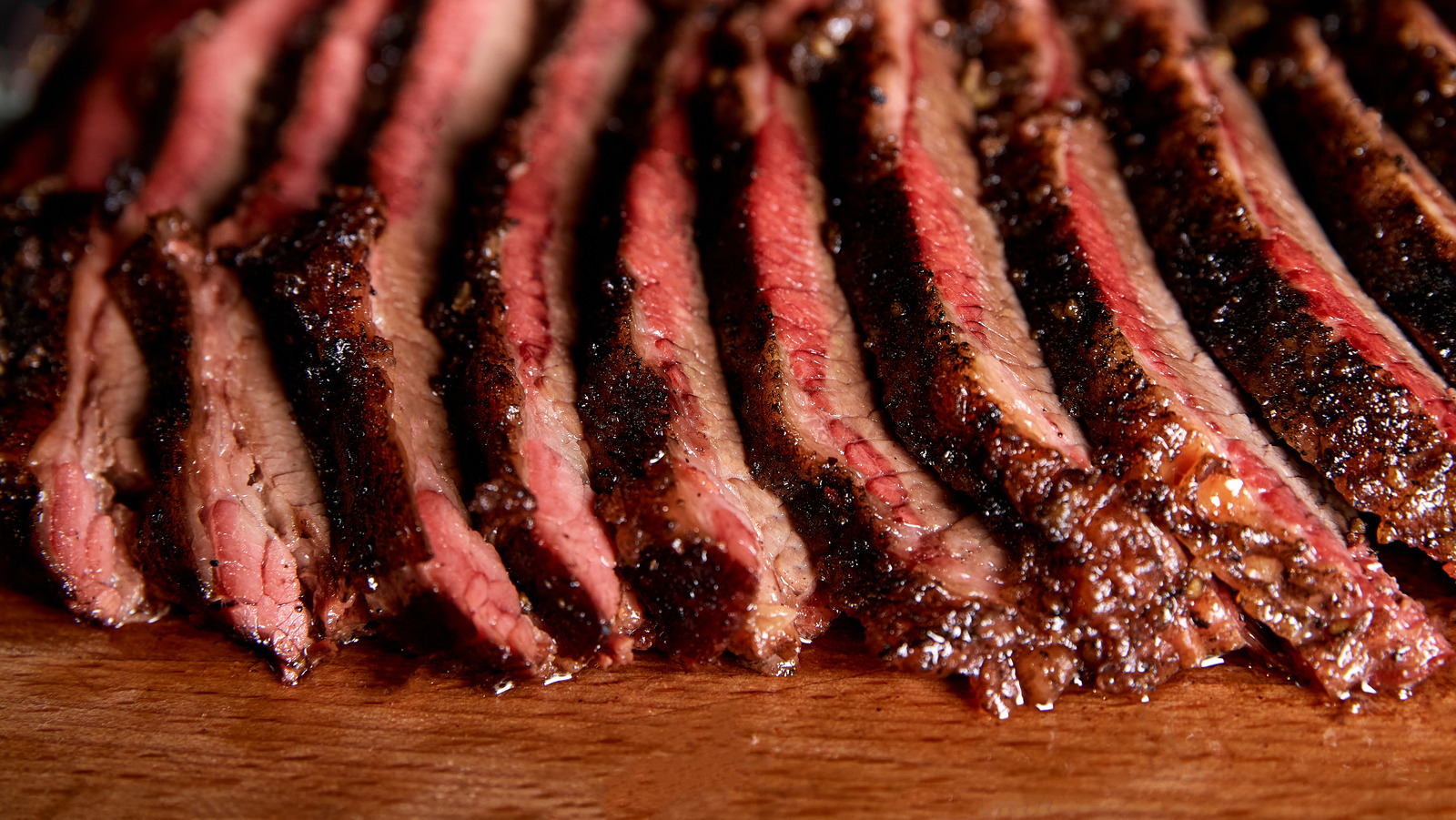
If you find yourself with an overcooked brisket, don’t panic! There are ways to salvage the meat and still enjoy a delicious meal. One option is to fix the texture by slicing the brisket thinly against the grain. This can help break down the tough, dry meat fibers and make it more tender. Another technique is to shred the overcooked brisket and use it in recipes like tacos, sandwiches, or chili. By adding some moisture through sauces or broths, you can revive the flavors and make the brisket enjoyable. So, even if you accidentally overcook your brisket, all hope is not lost!
Steps To Fix Overcooked Brisket
If you find yourself with an overcooked brisket, don’t panic! There are steps you can take to salvage the meat and still enjoy a delicious meal. One option is to slice the brisket thinly against the grain. This can help break down the tough, dry meat fibers and make it more tender. Another technique is to shred the overcooked brisket and use it in recipes like tacos, sandwiches, or chili. By adding some moisture through sauces or broths, you can revive the flavors and make the brisket enjoyable. So, even if you accidentally overcook your brisket, all hope is not lost!
Enhancing Flavor And Texture Of Overcooked Brisket
To enhance the flavor and texture of overcooked brisket, there are a few techniques you can try. One option is to slice the brisket thinly against the grain, which can help break down the tough, dry meat fibers and make it more tender. Additionally, you can shred the overcooked brisket and use it in recipes like tacos, sandwiches, or chili. By adding some moisture through sauces or broths, you can revive the flavors and make the brisket enjoyable. Get creative with seasonings and sauces to add an extra punch of flavor to the meat. With these techniques, you can salvage your overcooked brisket and still enjoy a delicious meal.
Conclusion
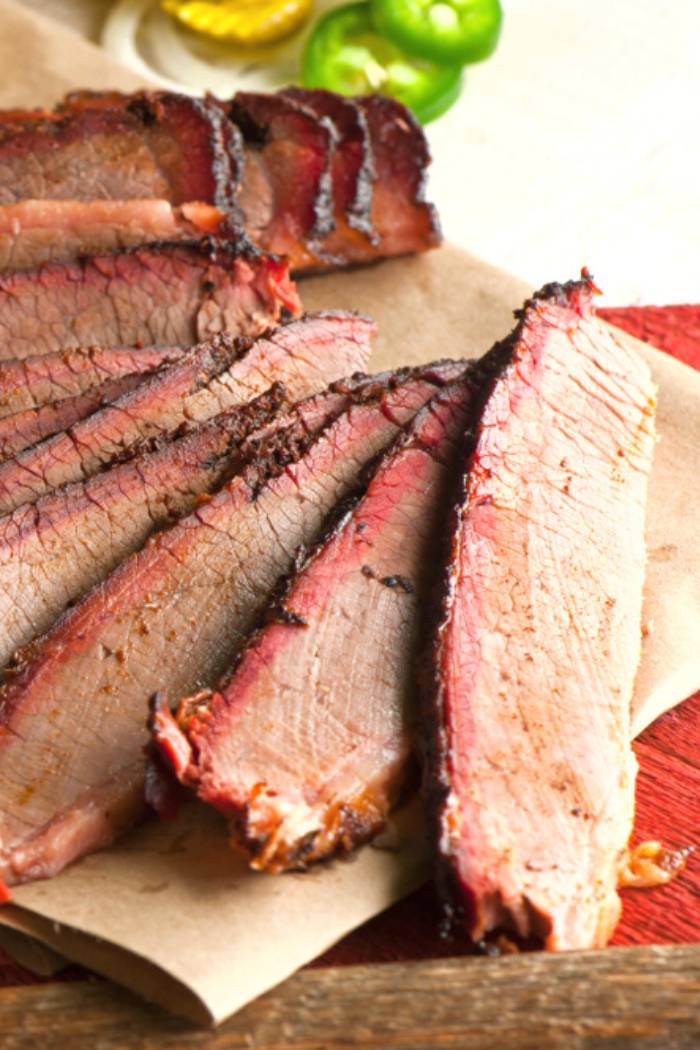
In conclusion, brisket is a challenging cut of meat to cook, but with proper attention and techniques, you can avoid the pitfalls of overcooking. Understanding the basics of brisket cooking, such as temperature guidelines and cooking time, is essential. Additionally, taking steps to prevent dry and tough brisket, such as using meat thermometers and employing resting techniques, can ensure a tender and flavorful result. However, if you accidentally overcook your brisket, there are still ways to salvage it by enhancing its flavor and texture. With these tips and tricks, you can master the art of cooking brisket and avoid BBQ disasters.
Key Takeaways And Final Tips For Perfectly Cooked Brisket
When it comes to cooking brisket, there are a few key takeaways and final tips that can help ensure a perfectly cooked result. First, remember to allow enough time for the brisket to cook slowly at a low temperature. This will help tenderize the meat and infuse it with smoky flavor. Secondly, invest in a reliable meat thermometer to accurately monitor the internal temperature of the brisket. This will help you determine when the meat is cooked to perfection. Finally, don’t forget the importance of resting the brisket after it’s cooked. Allowing it to rest for at least 30 minutes will help the juices redistribute throughout the meat, resulting in a moist and flavorful bite. By following these tips, you’ll be able to enjoy a tender, juicy, and delicious brisket every time.
FAQ About Can You Overcook Brisket: Avoiding BBQ Disasters
Q: What happens if you overcook brisket?
A: Overcooking brisket can result in a tough and dry piece of meat that lacks flavor. It is important to monitor the cooking process closely to avoid this outcome.
Q: How can you tell if brisket is overcooked?
A: An overcooked brisket will have a stringy texture, be difficult to chew, and lack the juiciness that is characteristic of well-cooked brisket. It may also have a burnt or charred taste.
Q: How long does it take to overcook brisket?
A: The exact time it takes to overcook brisket can vary depending on the cooking method and temperature. Generally, overcooking can occur if the brisket is cooked at too high a temperature for too long.
Q: Can you salvage an overcooked brisket?
A: In some cases, an overcooked brisket can be salvaged by slicing it thinly and serving it with a flavorful sauce or gravy to help add moisture and flavor. However, prevention is key to avoiding overcooking in the first place.
Q: How can you prevent overcooking brisket?
A: To prevent overcooking brisket, it is important to use a meat thermometer to monitor the internal temperature and remove the brisket from the heat source when it reaches the desired level of doneness. Additionally, using a low and slow cooking method can help ensure that the brisket cooks evenly and stays tender and juicy.

The Stone’s Sports Grill and Bar was Established on December 1, 2021. The Stone is a Sequel to another restaurant called Cornerstone’s First Edition in Tucumcari, NM. This particular venue is located on the Southeast side of Colorado Springs. The Stone is Wide Open. We have a large dance floor, multi-level stage, pool room, (5) dart boards, and a bar with a large selection of wine spirits and brews.